Deconstructing Daniel Negreanu’s Take on States-Based VPN Usage
I’ve got to say I was a little surprised a couple of nights ago when I became immersed in a Twitter debate with Daniel “Kid Poker” Negreanu over the ethics of using a VPN (virtual private network) connection to play on prominent offshore sites that block people from playing while within the United States.
Negreanu floated a rather leading poll on the topic, then wrote, “It’s illegal to play poker in Texas, are those that do unethical or cheaters? I grew up in Toronto playing in illegal underground games, was that unethical or cheating? Using a VPN from the US is similar to both of these activities. Convince me it’s different.”
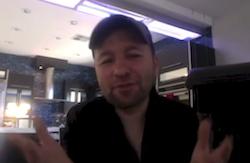 Well, I tried. Negreanu and I traded eight or ten pointed thoughts on the topic, and then he dashed off a blog post on the topic over at Full Contact Poker in which he attempted to expand on his viewpoint. I’ve been busy the last couple of days catching up after my own return from Vegas, but there’s enough that’s wrong in Negreanu’s post that it virtually demands one more response. There are still some things about the whole debate that utterly mystify me. Foremost among them: Why would one of the game’s most popular pros, Negreanu, openly advocate an activity that violates the rules of service of most of the world’s largest online poker sites?
Well, I tried. Negreanu and I traded eight or ten pointed thoughts on the topic, and then he dashed off a blog post on the topic over at Full Contact Poker in which he attempted to expand on his viewpoint. I’ve been busy the last couple of days catching up after my own return from Vegas, but there’s enough that’s wrong in Negreanu’s post that it virtually demands one more response. There are still some things about the whole debate that utterly mystify me. Foremost among them: Why would one of the game’s most popular pros, Negreanu, openly advocate an activity that violates the rules of service of most of the world’s largest online poker sites?
I’ve thought that one over a lot. The best I can come up with is that it’s about one third the worst aspect of old-school poker mentality, which is best summed up as, “To hell with rules; nothing matters but grabbing the money,” and two thirds personal frustration that’s swelled up over several years of online poker being generally unavailable in the US.
Understanding the Framework
Some backstory is in order. The long-term clampdown on online poker in the US, dating all the way back to late 2006 and the enactment of the UiGEA, has cost Negreanu lots of money. Negreanu had a nice thing going with the original Full Contact Poker site, which was once a reasonably popular poker skin in addition to being the “Daniel” forum. But post-UIEGA, it withered and struggled as it hopped from one network to the next, trying to stay open to the US. Eventually the poker operation was sold off, though the forum part endures.
Negreanu himself was still so popular that it was only a matter of time before a major site snapped him up as a spokesplayer, and the largest site of all, PokerStars, did just that in late 2007. Since Stars was still open to the US, Negreanu was a max-value asset, though that value was trimmed quite a bit when Stars was forced out of the States by the April 2011 “Black Friday” crackdown. Yet Negreanu still had global value, his name recognition and casual likeability being so high, and he also was part of Stars’ vision to reestablish itself in the US.
Unfortunately, that process was much slower than anticipated. The key episode was probably PokerStars’ extended battle to get online poker legalized in California, which failed due to gridlock engineered by several of that state’s most powerful tribal casinos. Negreanu was one of several Stars pros ordered to do the song-and-dance routine in California to curry favor for a “no bad actor” online poker legalization bill. I seem to remember Vanessa Selbst and Jason Mercier also being part of that.
Yet the California effort failed, and Stars’ new ownership (Amaya) was feeling business pressures in other areas, too. Given all that, it’s not hard at all to see Negreanu’s near-term value to Stars dwindling to the point that Stars had to step away from the deal. That’s through no fault of Daniel’s, and it’s irrelevant to the heat he’s taken from certain segments of the poker world.
A Bitter Negreanu?
Meanwhile, Negreanu had long since emigrated from his native Toronto to Las Vegas and, more recently, become a US citizen. So there he is, in Las Vegas. And you know what? Without the use of a VPN, and though it’s a great state to play poker live, it’s actually one of the worst places in the free world to play online. That’s because there is really only one legit option, that being Caesars’ wsop.com offerings. But because online poker is legal and regulated in Nevada, even grey-market sites such as Ignition Poker or America’s Cardroom won’t take Nevada players. It’s still way better than Washington State, but it ain’t no PokerStars.
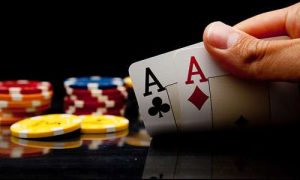 I’ve always understood the allure to prominent American pros of using a VPN, because it’s still not possible to be an online poker pro while playing from the States without either using one or really trusting to the grey-market sites. Yet here’s the thing: No one has the native entitlement to be a professional poker player within a pre-set environment, whether live or online. Instead, a pro exists and survives by adapting to and succeeding at games and market conditions that are always changing. That’s one of the things that’s always amused me the most about online “pros” who claim such an entitlement to certain games, with certain rake levels and frameworks set up just so to maximize their personal profits. If such a setup exists and they’re able to profit from it for a certain stretch of time, good for them. But they have no entitlement to such a pre-fab profit guarantee.
I’ve always understood the allure to prominent American pros of using a VPN, because it’s still not possible to be an online poker pro while playing from the States without either using one or really trusting to the grey-market sites. Yet here’s the thing: No one has the native entitlement to be a professional poker player within a pre-set environment, whether live or online. Instead, a pro exists and survives by adapting to and succeeding at games and market conditions that are always changing. That’s one of the things that’s always amused me the most about online “pros” who claim such an entitlement to certain games, with certain rake levels and frameworks set up just so to maximize their personal profits. If such a setup exists and they’re able to profit from it for a certain stretch of time, good for them. But they have no entitlement to such a pre-fab profit guarantee.
And with that, it’s time to visit Negreanu’s post about VPNs more directly, so we can see where the missteps and faulty logic occur. There’s so much to unpack it needs to be be brought over whole, as follows:
The real puzzling thing for me is why do sites care to waste money and resources on policing this? The US Government isn’t spending a dime to do so, so why should a company outside of their jurisdiction be held to policing something they aren’t morally opposed to? Why is the onus on the company to assure that US players aren’t playing from the US? If the US Government doesn’t want its citizens to use a product, they should police it themselves. It’s absurd to put that on the service provider. Let’s take a look at an absurd example to illustrate my point:
The country of Angola doesn’t want it’s citizens to be able to purchase Hollywood movies on Itunes. The country forbids it. Should Apple be responsible for making sure that no one in Angola is able to download music on Itunes? Should Apple spend one red cent to adhere to a government regulation that is outside that government’s jurisdiction? Of course not, it’s absurd.
But online poker companies do. They bow down to the US Government and eat it. Why? In the hopes of being able to re-enter the market if online poker is regulated in the future.
Is there any oversight happening in the US Government to ensure these sites are policing whether or not people are using a VPN? I highly doubt it.
I don’t have a problem with a site saying, “Yeah, yeah, we won’t let US players play on our site” as mostly lip service, but to actively seek people out who are doing so, and confiscate their funds, seems like its just not in their best interest whatsoever. What do they get out of it? Being sold the pipe dream that they will have a chance to reenter the US if regulation ever happens at the federal level. I wouldn’t hold my breath folks. It’s not happening any time soon or likely ever.
There’s a strong sense of bitterness in that likely brought on by Negreanu’s PokerStars/California experience, but you know what? Encouraging a site or sites to just go ahead and violate a country’s laws because “It’s not happening any time soon or likely ever” is a grossly irresponsible take.
You see, quite a few sites thumbed their noses at the US in earlier times, and it didn’t work out well. Let’s go back to late 2006 and the passage of the UIGEA. At that time, the biggest site was PartyPoker, and parent company PartyGaming thought long and hard about staying open to the States. PartyGaming soon learned, however, that the US and the UK had an extradition agreement, meaning that the execs of any site domiciled in the UK could be imprisoned and sent off to the US upon demand. That’s why Party and most other sites left the US; they were UK-based and faced that threat. And, if you know anything about how the US went after some owners of major offshore sports-betting sites such as BOS, you’d know this was a very real threat.
Dodging the Long Arm of the (US) Law
Still, a few sites stayed, because they were incorporated in the autonomous Isle of Man or the Caribbean or somewhere else the US couldn’t immediately reach. We all know the biggest names: PokerStars, Full Tilt, UltimateBet, Absolute Poker. In terms of serving the US, they lasted until April 2011’s “Black Friday”, when they were all indicted after being found to have committed years-long violations of the US’s electronic banking system (ACH) laws in order to keep on providing easy deposit/withdrawal access to American players.
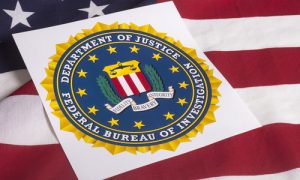 Yet Black Friday wasn’t an overnight event. The US’s DOJ and FTC began investigating those holdout sites in 2007, not long after Black Friday, and they did it by picking off the weak links, the third-party processors who opened up US-based bank accounts and served as conduits for Americans’ online-poker transactions. The most famous of those was Australian Daniel Tzvetkoff, whose Intabill operation was taken down in 2010, but the DOJ in particular took down a large number of these guys spanning several years.
Yet Black Friday wasn’t an overnight event. The US’s DOJ and FTC began investigating those holdout sites in 2007, not long after Black Friday, and they did it by picking off the weak links, the third-party processors who opened up US-based bank accounts and served as conduits for Americans’ online-poker transactions. The most famous of those was Australian Daniel Tzvetkoff, whose Intabill operation was taken down in 2010, but the DOJ in particular took down a large number of these guys spanning several years.
Whether or not the US is investigating individual players use of a VPN isn’t the point, but you can bet certain agencies will be watching if large volumes of money start moving through various payment channels earmarked for use on offshore poker sites. It’s all about monitoring and controlling the flow of money, and even though the UIGEA is a badly written law, its authors understood the real pressure point of the system.
Alright, then. Recommending that non-US sites ignore US laws is reckless and foolhardy, but it’s actually the lesser part of the wrong-headedness going on here. To believe that it’s okay to use a VPN to play on a site from a prohibited jurisdiction is arrogant and extremely self-entitled, and I’m not going to soften that to please Daniel one little bit. It is the height of utter arrogance to assert that an online-poker site doesn’t have the right to set its own rules about who gets to play on its software.
Again using Stars as the example, it’s completely that site’s right to decline players from certain countries or jurisdictions. It doesn’t matter why, really, though Stars has already paid a previous $731 million settlement for messin’ with the US. Whether Stars got royally screwed or not (and they probably did), it’s still not the players’ right to demand that Stars again start poking sticks into the big “USA” cage.
Seriously, Gordon Fucking Vayo?
Then there’s the part of Negreanu’s post dealing with Gordon Vayo, a proven VPN-er who took down and later forfeited a near-$700,000 score on PokerStars after Stars was able to determine Vayo was playing from Los Angeles rather than Montreal, as he tried to claim. Negreanu focuses almost exclusively on the fact that Vayo is Vayo, who would be the same better-than-average player whether he as playing from Montreal or Mexico or from a couch in Los Angeles, which turned out to be the case.
 That’s true, and it’s also wholly irrelevant. Vayo cheated, got caught cheating, and then sued PokerStars in an attempt to extract his frozen winnings. Worse, he commissioned the forgery of several documents falsely showing him residing in Montreal when he was in LA all along. The truth emerged when Vayo’s Canada-based forger confessed the crimes to PokerStars, and that led to PokerStars countersuing Vayo for the legal expenses it had incurred in defending itself against Vayo’s bogus claims.
That’s true, and it’s also wholly irrelevant. Vayo cheated, got caught cheating, and then sued PokerStars in an attempt to extract his frozen winnings. Worse, he commissioned the forgery of several documents falsely showing him residing in Montreal when he was in LA all along. The truth emerged when Vayo’s Canada-based forger confessed the crimes to PokerStars, and that led to PokerStars countersuing Vayo for the legal expenses it had incurred in defending itself against Vayo’s bogus claims.
Vayo even hid the truth of his forgeries from his own California attorney; that attorney quickly dumped him once the truth about the forgeries emerged so as not to risk sanctions, which could theoretically have included disbarment. One cannot read the hundreds of pages of court documents and not arrive at the conclusion that Vayo cares about no one or nothing except himself and his personal interests. And if he hurts other people or companies along the way, so what? It went beyond nihilistic self-entitlement and off into the land of narcissism.
Negreanu revisited the Vayo thing in our extended Twitter exchange, writing, “What he chose to do in terms of forgeries has literally nothing to do with the question we are discussing. I wrote that he sued and was counter sued. The details weren’t at all important to the points being made. It’s a sidebar.”
Then why is Negreanu using Vayo as the poster boy for his VPN argument? Also note specifically this phrase: “I wrote that he sued and was counter sued.” This is creating a false equivalence. All of the cheating, immoral, illegal acts were done by Vayo; PokerStars was just defending itself and its rights. Negreanu’s take is an extreme skewing of what went on in the Vayo situation.
It’s hard to fathom why Negreanu would ignore all the facts of the matter and essentially try to rehabilitate the image of a proven cheat. Maybe Daniel and Gordo are buds, now; Negreanu has been known to go to bat for his close friends in other situations where he would’ve been far better off to flee as far and as fast as possible. (Read: Erick Lindgren.)
Then again, perhaps the parting between Negreanu and PokerStars wasn’t nearly as amicable as originally presented, and this is some resentment toward Stars now bubbling over. Maybe Negreanu has some built-up enmity over taking a lot of public heat for defending some of the anti-grinder changes Stars has made over the past few years. Hey, there has to be some reason for Negreanu going off on this weird tangent, even though he does have a long history of doing so on some topic or another — usually once or twice a year — despite the damage he inflicts on his image in doing so. Still, Negreanu still appears to do some things with Stars, and Negreanu’s FCP blog still includes a review/affiliate link hookup to PokerStars as well. So the unchecked self-interest / Vayo friendship angles are likely closer to the mark.
Stop the False Nobility, Already
If it only ended there. If only. Negreanu has since gone off on a bizarre tangent, inferring that the use of VPNs from the States just might be a noble endeavor.
Negreanu begins on this tangent with the closing quote to his VPN-related blog post, writing:
“If a law is unjust, a man is not only right to disobey it, he is obligated to do so.”
-Thomas Jefferson
Okay. First, online-poker is a pastime for many and a profession for a lucky few, but it is not a life-or-death, give-me-liberty matter. Second, it’s a fake quote: Thomas Jefferson never said that. At least it wasn’t Negreanu serving up Nathan Hale purportedly saying, “Give me VPNs or give me death!”
Today, it got worse. He posted this in another ill-considered Twitter moment:
What if a given company of site restricted women or black people from playing? Would it be “immoral” for a black woman to say, screw that, set up a VPN, and crush souls?
Not sure about you, but I’d applaud her.
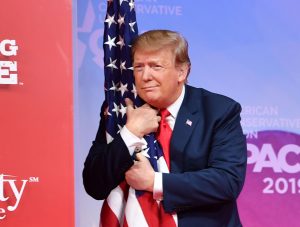 Sure. First, show me one single example of this occurring. The problem with using an absurdist example to justify a more mainstream concept is that the absurdist claim has to have some non-zero chance of being relevant. No site in the world has rules banning women or minorities, and women in particular are more likely to play online so as to avoid the blatant sexism still widely found in the live-poker world.
Sure. First, show me one single example of this occurring. The problem with using an absurdist example to justify a more mainstream concept is that the absurdist claim has to have some non-zero chance of being relevant. No site in the world has rules banning women or minorities, and women in particular are more likely to play online so as to avoid the blatant sexism still widely found in the live-poker world.
What wrapping this VPN stuff up in cloak of nobility is far more likely to do is to encourage underage wannabe online players into seeing if they can find a way to play online by obtaining fake ID and using a VPN. Negreanu is probably the world’s most popular poker player among casual poker fans, and the numbers alone infer that a certain amount of them will be young and impressionable. What’s going to happen when they read that Negreanu thinks it’s okay to use a VPN and ignore the rules of the sites that offer online poker? Yeah, I think so, too.
Well played… not. Should Negreanu want to go all Charles Barkley and claim, “I’m not a role model,” maybe Negreanu should’ve thought twice before accepting all those sponsorship millions. But it’s awful easy to grab the bucks up front and change one’s tune after the fact. Negreanu, though, often changes his beliefs to match up with whatever his current interests happen to be. There’s a word for that, and it starts with an “h”, but I’ll leave it as a reader exercise to suss it out. (I’m 5:3 to be Twitter-blocked by Daniel by this time tomorrow.)
The thing is, using a VPN to break a site’s rules and play online is elitist and self-serving literally by default. It shifts all the legal responsibilities and risks to the online-poker operator. It is generally available only to a tiny percentage of players in prohibited countries who would otherwise like to play online. It takes some money and/or quite a bit of technical savvy to set up a VPN connection, to obtain and create a fake ID, to create a fake presence (including bank accounts and bogus housing/utility statements) in another country, and do several other things. Most people want to play online with a few tens or hundreds of dollars, so such an investment in a VPN setup is incredibly not worth the time and money. And it weakens the political arguments and leverage of the larger majority of players who are willing to fight for change while playing by the rules.
For the privileged few, however, including Vayo, including Negreanu, the risks are weighted differently. Perhaps that’s why Negreanu wants to dress all this up as a noble endeavor and try to enlist some sort of public support.
It’s a sucker bet, however. VPN users cheat everyone, not just the sites. Your typical online-poker VPN user, like Vayo, is likely to be a superior-skilled player, and that player steals equity from everyone else on the site. Whether that player is in Montreal or Mexico or Los Angeles is utterly misleading, too. These days, sites and networks such as PokerStars serve countries and territories, not individual players. So if an American visits or moves to a country where PokerStars is available, he or she can play. Simple beans, and a player’s location and age are the two defining factors in eligibility to play.
White-label jurisdictions such as the UK and New Jersey even forbid licensed operators from offering their services in prohibited jurisdictions. GVC Holdings, the parent company of partypoker and other brands, just emerged from a difficult regulatory battle in Nevada over its prior presence in Turkey, of all places. Such global responsibility is a growing obligation for online sites, and it’s going to continue to grow in the future.
Yet here’s Negreanu saying sites should just give a nod and a wink to this increasing global framework and all but ignore those countries’ rules. As blind spots go, that’s a whopper.
(The opinions published here are those of the author and not necessarily those of the owners and publishers of Flushdraw.)


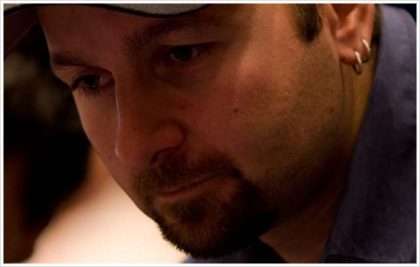





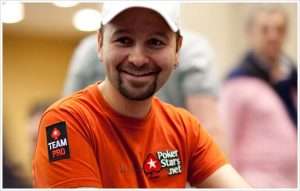












Great, well thought out article.
I can understand someone not liking a law. Big deal. I hate red light cameras (I’ve been nailed only once, though), but I don’t advocate destroying them. 🙂